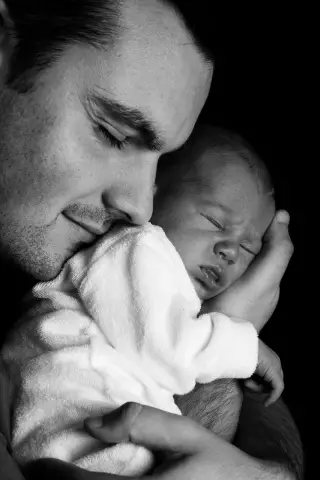- Author Rachel Wainwright wainwright@abchealthonline.com.
- Public 2023-12-15 07:39.
- Last modified 2025-11-02 20:14.
Parenting Approaches
Approaches to raising children allow you to choose the right direction for the education, formation and development of a child, to reveal his individual characteristics and abilities.

Modern approaches to raising children
A parenting approach plays an important role in a comfortable and fulfilling development. In the preschool period, the social environment in which the child lives plays an important role; it directly affects him and his development.
In modern pedagogy, the approach of life education is actively used. Within the framework of this methodology, the upbringing and education of the child occurs due to his own experience, as well as taking into account the right and wrong actions. Living conditions directly affect the personality of the child.
When raising preschool children, you can use a labor approach, which can include both working at home, in kindergarten and other preschool institutions, and playing sports. Training and sports exercises help to temper the character of the child, to cultivate endurance, willpower and spirit, hard work and patience in him.
Modern approaches to parenting are to gradually instill in the child basic life skills.
When choosing certain approaches in raising children, one should select the appropriate direction - authoritarian, liberal, democratic and indifferent.
The authoritarian approach involves raising a child in rigidity and severity, unconditional obedience and adherence to strict rules. The child is in a passive state, he depends on his parents and does not make decisions. A serious drawback of the authoritarian approach in raising children is the loss of creativity and lack of initiative, lack of independence and the ability to make serious decisions.
The opposite direction in education is a liberal approach, in which the personality of the child plays an important role. In the process of education, there are no prohibitions, rules and restrictions. In pedagogy, this approach is called the "method of permissiveness." The disadvantage of this approach is the lack of restrictions, which can lead to selfishness and spoiledness, lack of purpose in life.
A democratic approach to raising children implies an equal relationship between parents and children. Decisions are made at the family council, and at all stages of development, the child is an equal participant in upbringing, expresses his opinion and defends his personal interests.
An indifferent approach to raising children is a method of free development of a child in which parents do not participate. The child is considered an independent and free person who should not be burdened with various rules, restrictions and problems. Parents, using this approach, do not participate in the child's life, in his internal and external development. As a result of such upbringing, the child lacks guidelines in life, he does not feel support and protection, and he also does not have a spiritual connection with his parents. In the end, such upbringing children become closed and asocial.
In order for a child to grow up as a full-fledged personality, approaches to education must be chosen taking into account the characteristics of the child. In upbringing, there should not be a lot of prohibitions, but parents and teachers need to be a guiding and controlling party.
Features of the individual and activity-based approach to education
The most effective in pedagogy are individual and activity-based approaches to raising children.
An individual approach to raising a child is a pedagogical process that takes into account individual characteristics that affect behavior and development. This approach uses various methods of education (in accordance with the personality of the child) aimed at achieving positive results. The child is seen as an independent, unique and responsible person.
When using an individual approach in raising a child, hidden abilities and opportunities are revealed, and self-awareness and self-determination are formed. The child's personality prevails over the team, its humanistic, creative, intellectual and physical abilities are taken into account.
Teachers who use an individual approach value the child highly, instilling in him intellectual, moral and social values. In this approach, attention is focused on each child, his desires and capabilities.
The activity-based approach to the upbringing of children is an effective teaching method, in the process of which the child receives, remembers and uses knowledge in educational and cognitive activities. Knowledge is not given to the child in a ready-made form, but the educational process is organized in such a way that the child actively and systematically develops and learns.
The activity approach in raising children is based on the following didactic principles:
-
the principle of activity in the course of which the child receives knowledge, realizes and uses it in various spheres of his life;

The essence of the activity approach in raising children - the principle of continuity, which is continuity at all levels of education;
- the principle of integrity, which forms the systemic and generalized knowledge of children about the world around them;
- the principle of psychological comfort, within the framework of which favorable conditions are created for the cognitive activity of children;
- the principle of variability, which forms the ability to different options for solving problems;
- the principle of creativity, implying the use of creative potential in the educational process.
Cognition of the activity approach in raising children is considered in a broad sense, and also includes world outlook, personal formation and independent determination of the child. The main role in this approach is played by the activities of children, in the process of which solutions to problems are found. Teachers and parents are corrective, supportive and stimulating.
Found a mistake in the text? Select it and press Ctrl + Enter.






